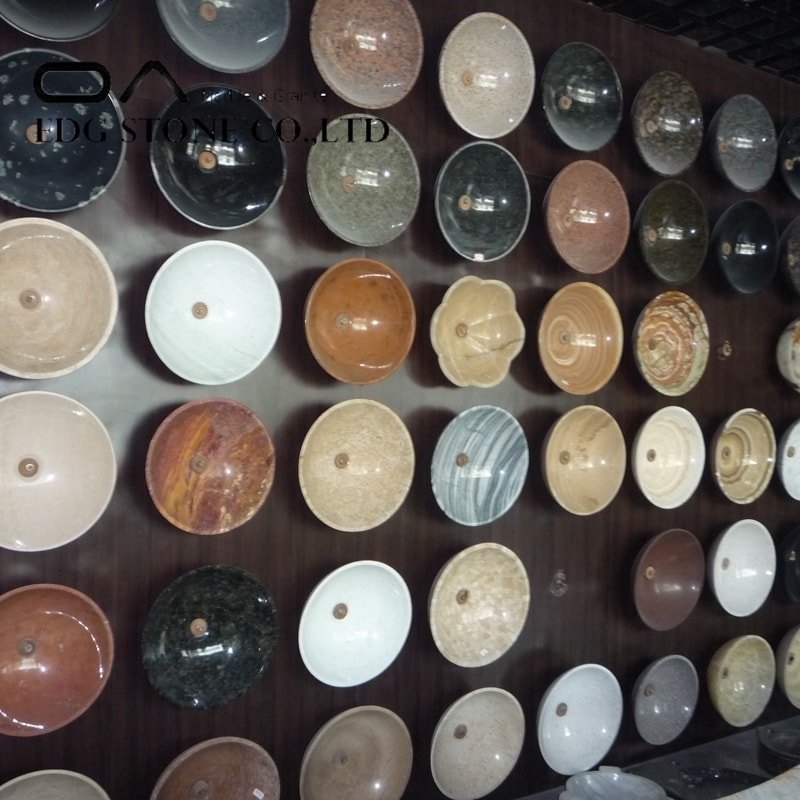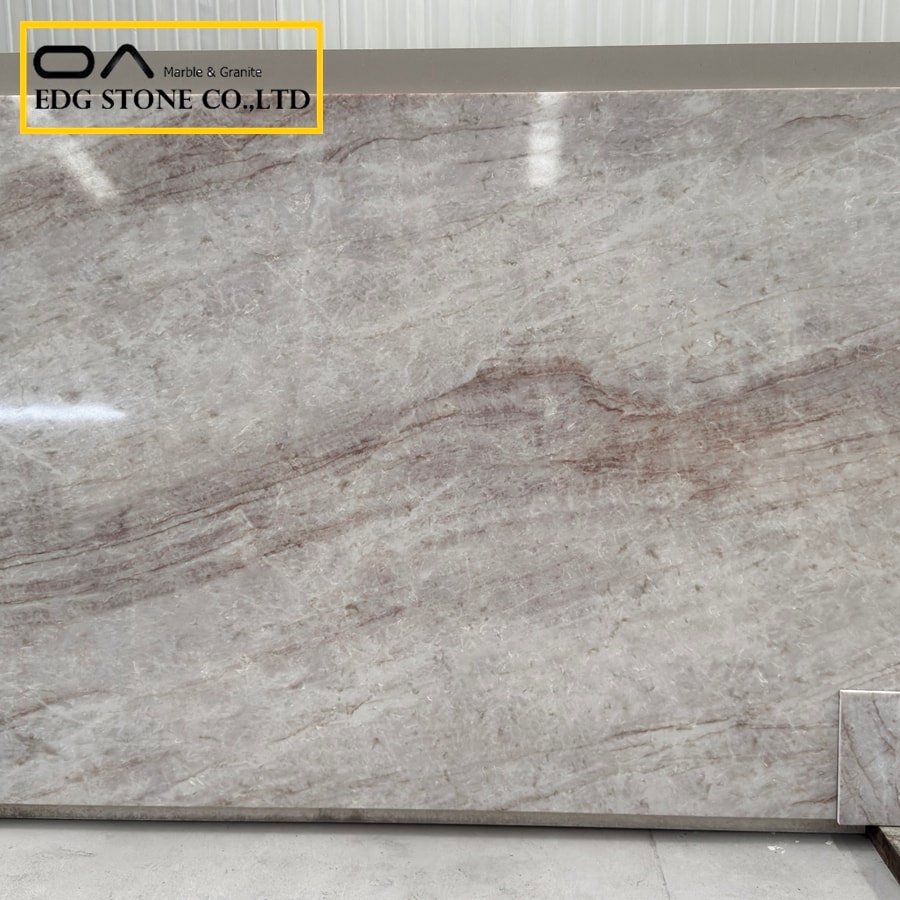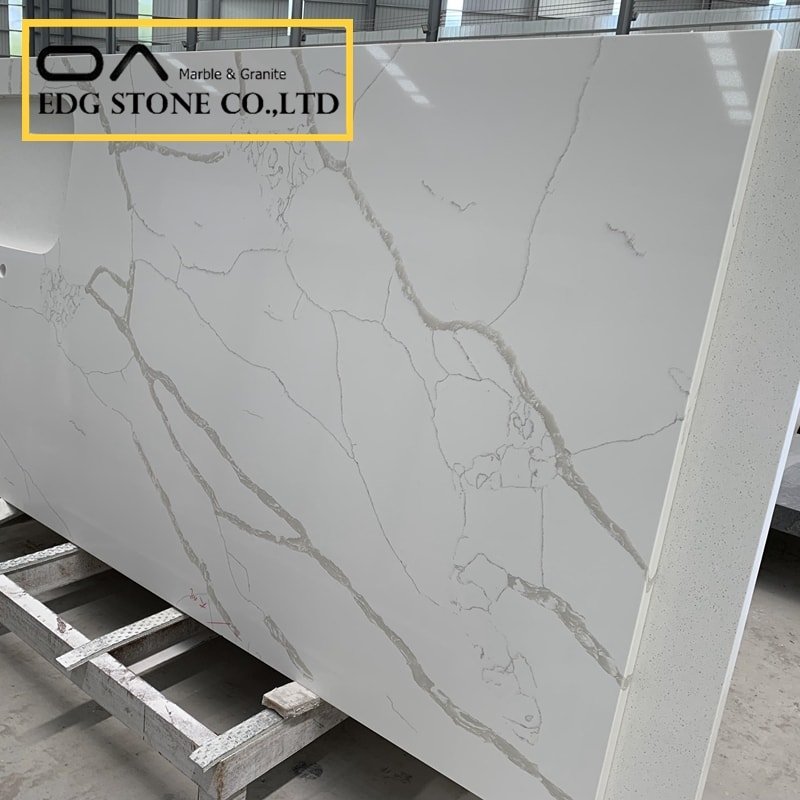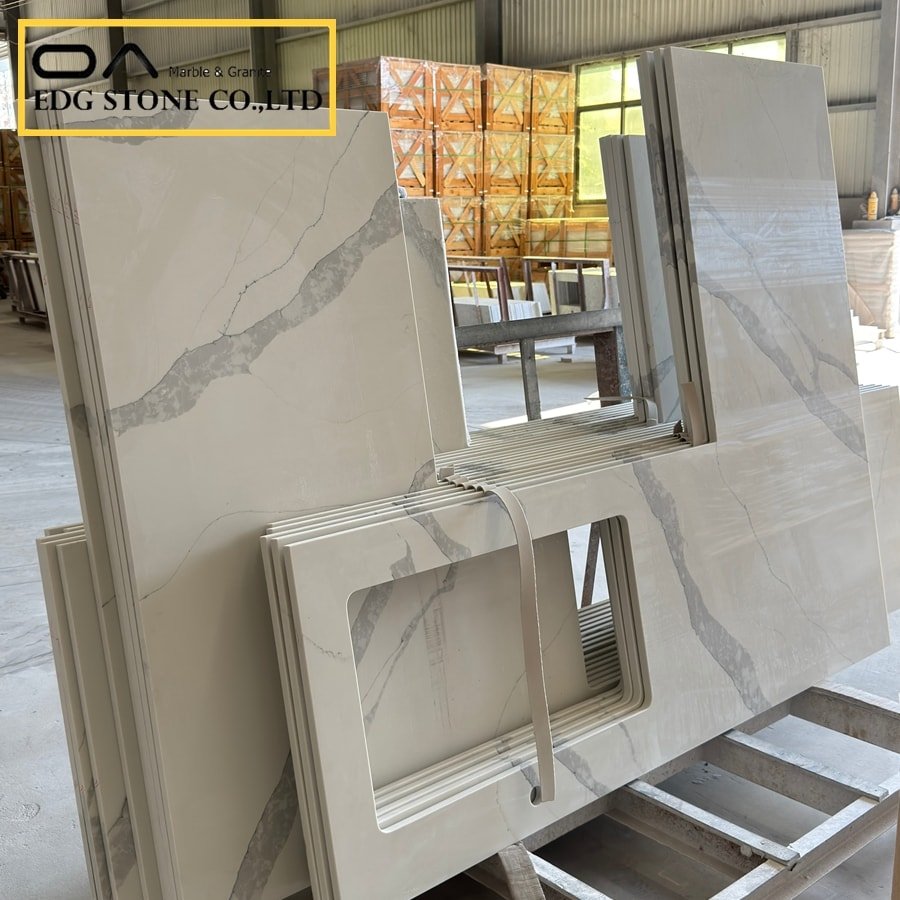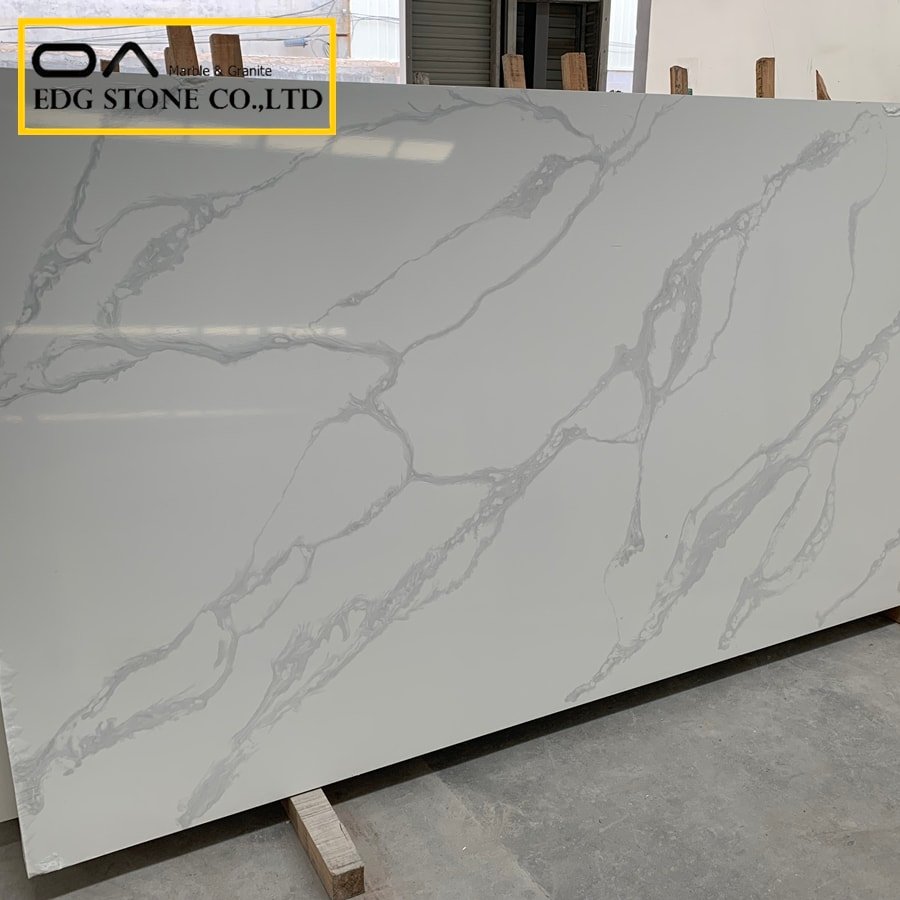Are Quartz Kitchen Sinks Durable?
Quartz kitchen sinks have surged in popularity over the past decade, offering homeowners a sleek, modern alternative to traditional stainless steel, cast iron, or ceramic sinks. But one question consistently arises: Are quartz kitchen sinks durable?
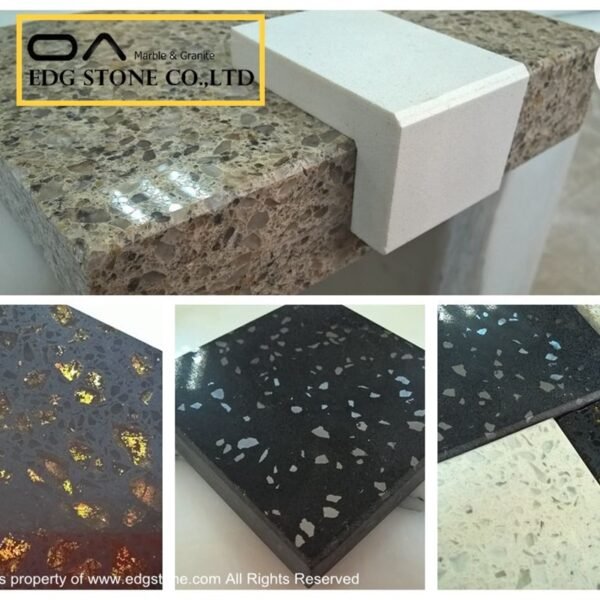
quartz sink vs stainless steel
Pros and Cons of Quartz Sinks
Quartz sinks—also known as quartz composite sinks—are engineered from a blend of natural quartz stone and acrylic resins. This composite structure offers a number of advantages, but there are also potential drawbacks to consider.
Pros of Quartz Sinks
- Exceptional Durability
- Scratch Resistance: Quartz sinks are highly resistant to scratches, thanks to the hardness of quartz crystals embedded in the composite material.
- Stain Resistance: The non-porous surface prevents liquids, such as coffee, wine, or tomato sauce, from seeping in and causing unsightly stains.
- Heat Resistance: Most quartz sinks can withstand temperatures up to 536°F (280°C) without discoloration or warping. However, prolonged exposure to direct heat (e.g., placing hot pots directly on the sink surface) should be avoided.
- Hygienic Surface
- Non-Porous Composition: Unlike natural stone sinks, quartz composite sinks do not have microscopic pores that can harbor bacteria or odors, making them a hygienic choice for kitchens.
- Easy to Clean: A simple routine of mild dish soap and warm water is often enough to keep the sink looking pristine. Avoid harsh chemical,s which may degrade the resin over time.
- Aesthetic Versatility
- Wide Color Range: Quartz composite sinks are available in various colo, s—including Black Quartz Sink finis, es—that mimic the look of natural stone or provide a solid, matte appearance that complements modern cabinetry.
- Consistent Coloring: Since quartz sinks are manufactured, they offer uniform color and pattern compared to natural stone, ensuring a predictable match to countertops or cabinetry.
- Low Maintenance
- Resistance to Chips and Cracks: While quartz sinks can chip if subjected to extreme impacts (e.g., dropping a cast-iron skillet), they generally resist cracking better than ceramiccast-ironiron sinks.
- Long Lifespan: Properly cared for, a quartz sink can last 20–30 years without significant deterioration.
Cons of Quartz Sinks
- Potential for Chipping
- Edge Vulnerability: The edges of quartz sinks, particularly around corners or near faucets, can chip if heavy or sharp objects are dropped directly onto them. Users have reported minor nicks when cutting food over the sink basin.
- Cost Considerations
- Higher Price Point: Quartz composite sinks typically range from $300 to $800, depending on brand, size, and features, making them more expensive than many basic stainless steel sinks.
- Installation Costs: Under-mount quartz sinks require professional installation, which adds $100–$200 to the overall expense.
- Color Fading Over Time
- UV Exposure: Extended exposure to direct sunlight can cause some quartz composite sinks—especially lighter colors—to fade or yellow over the years. Countertops are less prone, but it’s something to consider for sinks placed near windows.
- Limited Heat Tolerance Compared to Metal
- Direct Heat Contact: While quartz sinks resist heat well, placing a smoking-hot pan (over 536°F) directly in the basin may cause slight discoloration or damage to the acrylic resins. In contrast, stainless steel sinks are virtually impervious to such heat.
Pros and Cons of Granite and Quartz Sinks
Granite and quartz sinks share many similarities—they are both composite materials made by combining crushed stone (granite or quartz) with resins. However, subtle differences in composition, performance, and cost can influence your decision.
Pros of Granite Sinks
- Natural Stone Aesthetic
- Granite Composition: Typically made from 80% natural granite stone and 20% acrylic resins, granite sinks offer a distinct, speckled pattern that resembles the countertops they often accompany.
- Heat Resistance
- Higher Heat Tolerance: Granite sinks can withstand higher temperatures than many quartz composites—up to approximately 575°F (300°C), making them more forgiving with hot cookware.
- Stain and Scratch Resistance
- Dense Stone Core: Granite sinks are resistant to staining and minor scratches, though the protective resin can degrade slightly faster than that used in premium quartz composites.
Cons of Granite Sinks
- Higher Maintenance
- Periodic Sealing: To maintain stain resistance, granite sinks may require occasional re-sealing—usually once every 12–18 months—depending on usage. Failure to seal can result in dullness or discoloration.
- Chipping
- Resin Vulnerability: While the granite stone is highly robust, the acrylic resin, used to bind the crushed ston, —can chip, especially around edges. Repair kits exist, but matching the color perfectly can be challenging.
- Limited Color Range
- Natural Tones Only: Granite sinks come in neutral, earthy colors—black, gray, or speckled patterns—offering fewer aesthetic options compared to quartz sinks.
Pros of Quartz Sinks (Recap)
- Superior Durability: Quartz sinks are generally harder than granite, making them more resistant to chips and scratches.
- Lower Maintenance: No sealing is required; cleaning is typically limited to a mild detergent routine.
- Broader Color Selection: From matte black to white, cream, or even bold hues, quartz sinks cater to more design palettes.
Cons of Quartz Sinks (Recap)
- Heat Sensitivity: While heat resistant, extended exposure to very high temperatures can damage the acrylic resins.
- Installation Requirements: Quartz sinks often require professional under-mount installation, increasing labor costs.
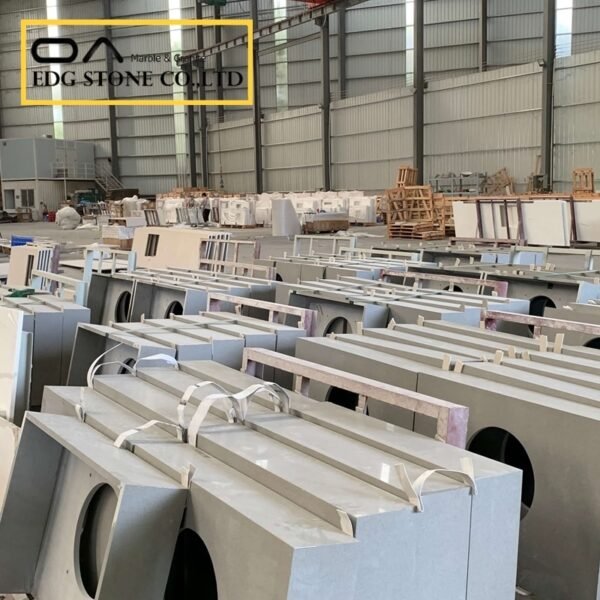
quartz sink pros and cons
Pros and Cons of Quartz Sinks for Kitchens
While quartz sinks in general offer durability and aesthetic versatility, for kitchen-specific usage, there are additional considerations, ranging from everyday wear-and-tear to integration with different countertop materials.
Pros
- Resistance to Daily Wear
- Heavy Use: Family kitchens endure heavy use—dishes, pots, and kitchen gadgets daily. Quartz sinks can withstand this constant activity, resisting scratches and chips more effectively than ceramic or enameled cast-iron sinks.
- Color Stability: Kitchen sinks are subject to spills—coffee, wine, tomato sauces. Because quartz sinks are non-porous, they do not absorb these pigments, maintaining consistent coloration over time.
- Noise Reduction
- Sound Dampening: Many quartz sink manufacturers embed extra cork or rubber pads beneath the surface to reduce noise from running water or clattering dishes, making them quieter than stainless steel sinks.
- Integration with Quartz Countertops
- Seamless Aesthetic: Homeowners using quartz countertops often prefer matching quartz sinks or complementary colors to create a cohesive, high-end look. The seamless finish enhances the kitchen’s design flow.
Cons
- Vulnerability to Impact
- Heavy Objects: While quartz sinks resist light impacts, dropping a cast-iron skillet or heavy stainless-steel cookware can cause chipping at high-impact points, particularly along edges.
- Heat Precautions
- Protective Measures Needed: Avoid placing extremely hot pots or pans directly in the sink basin; always use a trivet or cooling rack to distribute heat and prevent possible discoloration or damage to the sink’s resin.
- Potential Acidic Stains
- Mild Chemical Sensitivity: While quartz sinks resist common kitchen acids (vinegar, lemon juice) fairly well, extremely acidic cleaners (bleach, ammonia) can dull or discolor the finish if left to dwell. Use pH-neutral stone cleaners for best results.
Granite VS Quartz VS Stainless Steel Sinks
Choosing a sink material often comes down to weighing the key differences among granite composite, quartz composite, and stainless steel. Each material has unique strengths and potential drawbacks:
| Feature | Granite Composite | Quartz Composite | Stainless Steel |
|---|---|---|---|
| Durability | High—resists heat, scratches; may chip resin edges over time | Very High—excellent scratch and heat resistance; less porous than granite | High—resists dents with thick gauges; can scratch or dent under heavy impact |
| Maintenance | Sealing is recommended every 12–18 months; avoid harsh chemicals | No sealing needed; wipe down with mild detergent; avoid abrasive cleaners | Low—typically requires just a wipe-down; can develop water spots; may scratch |
| Heat Tolerance | Up to ~575°F; resists heat well | Up to ~536°F; resists everyday heat but is vulnerable to extreme temperatures | Virtually unlimited; withstands boiling water and hot pans |
| Aesthetics | Natural speckled stone look; limited color range (black, gray) | Wide color palette (black, white, cream, colored composites); consistent finish | Classic stainless finish; fits modern or industrial kitchens; limited color, only steel |
| Noise | Moderate; composites dampen sound | Low, cork, or rubber undercoats reduce noise significantly | High,; clanging dishes or running water can be noisy without sound pad upgrades |
| Cost | $250–$600 (installed) | $300–$800 (installed) | $150–$400 (installed) |
| Installation | Under-mount or top-mount; professional recommended | Under-mount is typically professionally recommended | Top-mount or under-mount; DIY-friendly (in some cases) |
Table Source: Compiled from multiple manufacturers and industry reviews (see References section).
Quartz Sink vs. Stainless Steel: Which is Better for Your Kitchen
For many homeowners, the decision between a Quartz sink vs. a stainless steel sink hinges on a balance between aesthetics, budget, and functionality. Below, we break down the key comparison points:
Durability & Longevity
- Scratch & Chip Resistance
- Quartz Composite:
- Resistant to light scratches, the hardness of natural quartz crystals keeps the sink looking newer longer.
- Potential to chip edges if a heavy impact occurs, especially if a cast-iron skillet or heavy pan is dropped.
- Stainless Steel:
- Thinner-gauge steel (16–18 gauge) can dent under very heavy impact.
- Thicker gauges (below 16 gauge) resist dents but may still scratch over time. These scratches often blend into the grain pattern.
- Quartz Composite:
- Heat & Stain Resistance
- Quartz Composite:
- Non-porous, so everyday stains (coffee, red wine, tomato sauce) can be wiped away easily.
- Avoid placing extremely hot pans (over 536°F) directly in the basin; discoloration is possible.
- Stainless Steel:
- Impervious to heat, you can place a hot pot or pan directly onto the sink surface without damage.
- Prone to water spots and mineral deposits (hard water stains), which may require occasional polishing.
- Quartz Composite:
- Noise & Sound Dampening
- Quartz Composite:
- Often equipped with cork or rubber padding on the underside to reduce noise from running water and clattering dishes.
- Stainless Steel:
- Typically louder, producing a hollow “clang” when dishes or utensils hit the basin.
- Many higher-end stainless sinks include sound-deadening pads/applied coatings to mitigate noise.
- Quartz Composite:
- Maintenance & Cleaning
- Quartz Composite:
- Cleaning usually requires mild detergent and warm water. Avoid harsh or abrasive cleaners, which can dull or scratch the finish.
- Stainless Steel:
- Wipe down with a non-abrasive cloth and mild dish soap.
- Use stainless steel polish to restore luster and remove water spots.
- Avoid steel wool or abrasive cleaners, which can leave fine scratches.
- Quartz Composite:
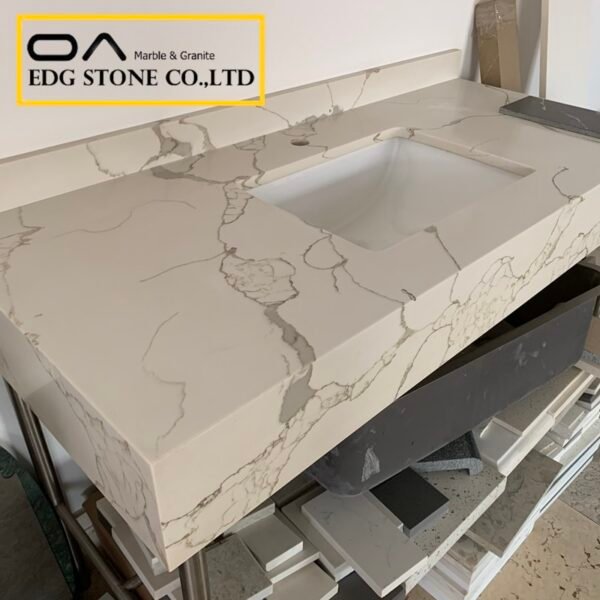
granite vs quartz sink
Aesthetic & Design Considerations
- Color & Finish Options
- Quartz Composite:
- Available in multiple solid colors—black, white, gray, cream, or earthy tones—to match countertops or create a bold contrast.
- Stainless Steel:
- Limited to metallic finishes—brushed, satin, or polished. Can complement stainless steel appliances and modern kitchens.
- Quartz Composite:
- Visual Impact
- Quartz Composite:
- Offers a more integrated, matte or semi-matte appearance that hides minor scratches and water spots better than shiny steel.
- Solid colors can create a seamless look if paired with quartz countertops.
- Stainless Steel:
- Reflective surface brightens the kitchen but shows fingerprints, smudges, and water spots more readily.
- Works well in industrial or contemporary design schemes.
- Quartz Composite:
- Customization
- Quartz Composite:
- Some manufacturers offer custom cutouts, integrated drainboards, or apron-front designs in matching quartz.
- Stainless Steel:
- Available in various sink styles—top-mount (drop-in), under-mount, or farm/professional style. More readily available in a wide range of configurations.
- Quartz Composite:
Cost & Value
- Initial Investment
- Quartz Composite:
- Typically $300–$800 for the sink alone; professional under-mount installation adds $100–$200.
- Stainless Steel:
- Budget sinks can be as low as $100; premium 16-gauge or better can cost $300–$500. DIY installation is possible, reducing labor costs significantly.
- Quartz Composite:
- Long-Term Durability
- Quartz Composite:
- Typically maintains color and finish for decades if cared for properly.
- May require occasional edge repairs or professional refinishing if extensively chipped.
- Stainless Steel:
- May show visible scratches over time, but these often blend into the grain, creating a lived-in patina. Dent repair is virtually impossible; scratches can be buffed, but deep dents may require sink replacement.
- Quartz Composite:
- Resale Considerations
- Quartz Composite:
- Convey a high-end, cohesive look, especially if paired with quartz countertops and backsplash, potentially raising perceived home value in upscale markets.
- Stainless Steel:
- Universally recognized and appreciated by many homebuyers. Matches most kitchen designs and is often perceived as a practical, long-lasting choice.
- Quartz Composite:
FAQ
Below are detailed answers to frequently asked questions related to Quartz kitchen sinks durability and general Quartz sinks inquiries. Each question incorporates long-tail variations to accommodate common search patterns.
Are quartz kitchen sinks durable?
Yes, quartz kitchen sinks are durable. Their composite makeup—approximately 80% natural quartz stone and 20% acrylic resins—creates a hard, non-porous surface. This structure resists scratching, chipping, and staining under typical kitchen use. However, direct impact from heavy cast-iron cookware can cause minor chips at sink edges. Additionally, while quartz resists everyday heat, avoid placing extremely hot pans (above 536°F) directly in the basin to prevent discoloration of the resin. Overall, quartz sinks can last 20–30 years when properly maintained, making them an excellent long-term investment.
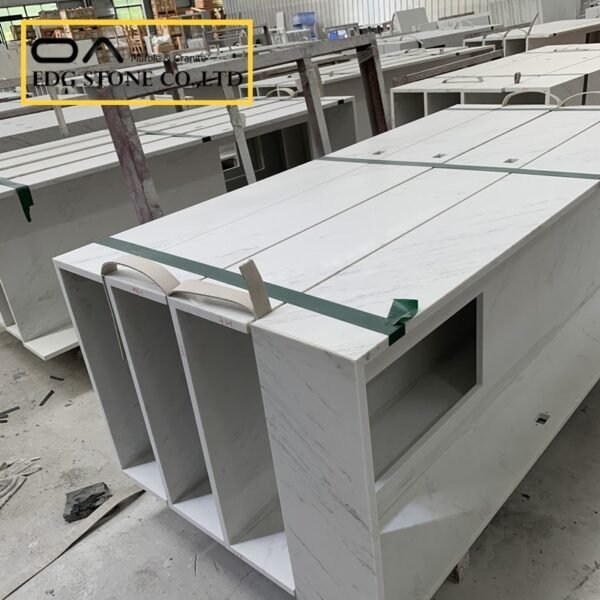
best kitchen sink materials
Are quartz sinks durable?
Generally, quartz sinks are considered highly durable. Quartz is one of the hardest minerals, and when combined with durable resins, the composite becomes resistant to scratches, stains, and most everyday kitchen hazards. The non-porous nature of quartz sinks prevents bacterial growth and water absorption, further protecting against long-term wear. Nevertheless, extreme impact and exposure to direct heat should be avoided. As compared with ceramic or acrylic sinks, quartz composites offer superior longevity and color retention.
Are quartz sinks better than stainless steel?
Whether quartz sinks are better than stainless steel depends on priorities:
- Scratch & Chip Resistance: Quartz composites outperform thinner stainless steel in resisting light scratches.
- Heat Resistance: Stainless steel wins for heat tolerance (no risk from hot pots), whereas quartz can discolor if exposed to extremely high temperatures.
- Noise Level: Quartz sinks are typically quieter due to built-in sound-dampening pads, whereas steel can be noisy without additional insulation.
- Aesthetic Versatility: Quartz offers a broad color palette, while stainless steel has a metallic finish suited to modern or industrial designs.
- Maintenance: Both are easy to maintain—quartz requires only mild detergent and water; steel needs occasional polishing to remove water spots.
Ultimately, if you value color options and resistance to scratching, quartz may be better. If heat tolerance and a classic metal look are priorities, stainless steel could be preferable.
Is quartz good for a kitchen sink?
Quartz is an excellent material for kitchen sinks due to its durability, non-porous nature, and attractive finish. Key benefits include:
- Resists Stains & Bacteria: The non-porous surface repels water and prevents bacterial growth.
- Scratch Resistance: Hard quartz crystals make the sink less prone to scratches from utensils or groceries.
- Multiple Color Options: Available in solid colors, such as Black Quartz Sink finishes, to match cabinets and countertops seamlessly.
- Low Maintenance: Cleaning involves mild soap and water; avoid abrasive cleaners to preserve the glossy or matte finish.
- Sound Dampening: Built-in padding reduces noise from running water and clattering dishes.
Some users note that quartz sinks can chip if exposed to extremely heavy impacts, and direct contact with hot cookware should be minimized. However, for most families, quartz composite sinks offer an ideal blend of form and function.
Are quartz sinks a good idea?
Quartz sinks can be a very good idea when you seek a modern, cohesive look, especially if you pair them with quartz countertops or consistent décor. Consider these factors:
- Cost vs. Longevity: While quartz sinks are more expensive upfront than basic stainless steel, their long-term durability often justifies the investment.
- Design Flexibility: Available in multiple colors (white, cream, gray, black), quartz allows customization to fit any kitchen style—be it contemporary, transitional, or traditional.
- Ease of Maintenance: Minimal upkeep is required—regular wiping with mild detergent keeps the sink looking new.
- Potential Drawbacks: Be mindful of heat exposure and avoid dropping heavy objects directly onto the sink’s edges.
If you prioritize a luxurious look, quieter operation, and robust scratch resistance, a quartz sink is generally a good idea. For households requiring maximum heat tolerance (e.g., frequent handling of hot pots) or on a strict budget, stainless steel might be a more practical choice.
Are quartz sinks any good?
In short, yes, quartz sinks are good—many homeowners and kitchen designers praise their reliability and style. Features that make them “good” include:
- High Durability: Comparable to or exceeding granite composite sinks in hardness and scratch resistance.
- Stain Resistance: The non-porous finish prevents discoloration from coffee, tea, or wine.
- Color & Style Variety: Whether you want a sleek Black Quartz Sink or a bright white basin, quartz sinks cater to diverse design needs.
- Noise Reduction: The integrated damping pads make quartz sinks quieter than most stainless steel options.
- Potential Downsides: Monitor for potential chips at edges and avoid direct contact with extremely hot cookware.
Given these factors, quartz sinks represent a solid choice for modern kitchens, especially if you value an upscale appearance and hassle-free maintenance.
Are quartz kitchen sinks good?
Quartz kitchen sinks are good for most household cooking and cleaning tasks. Their high resistance to everyday scratches, stains, and heat makes them a durable option. Compared to traditional materials like stainless steel, quartz sinks offer a quieter, more uniform aesthetic, especially when paired with quartz countertops. The primary caveats revolve around protecting the sink from severe impacts (dropping heavy pots) and avoiding direct exposure to extremely high temperatures. When properly installed (preferably undermount) and cared for, quartz sinks can enhance both the functionality and visual appeal of any kitchen.
Conclusion
Quartz composite sinks provide a compelling blend of durability, low maintenance, and aesthetic flexibility, making them an increasingly popular choice for modern kitchens. While they generally resist scratches, chips, and stains more effectively than other composite materials, they are not completely indestructible—extreme impacts and high heat exposure should be managed carefully. When compared to granite sinks, quartz typically offers slightly better durability and requires less sealing, though granite can withstand marginally higher temperatures. In comparing Quartz sink vs stainless steel, the decision boils down to priorities: quartz offers quieter operation, color variety, and consistent appearance, whereas stainless steel excels in heat tolerance, cost-effectiveness, and a classic metallic look.
Ultimately, whether quartz kitchen sinks are durable or a good idea depends on your lifestyle, budget, and design preferences. If you value a seamless, high-end aesthetic and relatively simple upkeep, a quartz sink is likely an excellent fit. For those with more budget constraints or requiring maximum heat resilience (e.g., frequent use of hot, cast-iron cookware), stainless steel may be more practical. As with any significant kitchen investment, weigh the Pros and Cons of Quartz Sinks, consider Granite vs Quartz vs Stainless Steel Sinks, and review user feedback or Quartz sink reviews before making your final choice.
30 SEO-Friendly Tags
quartz kitchen sinks,quartz sink vs stainless steel,quartz composite sink problems,disadvantages of quartz sink,quartz sinks,quartz sink reviews,black quartz sink,quartz sink pros and cons,granite vs quartz sink,quartz sink durability,best kitchen sink materials,buy quartz sink,quartz sink supplier,quartz sink wholesale,quartz sink factory,cheap quartz sink,high quality quartz sink,quartz sink installation,quartz sink cleaning,quartz sink maintenance,quartz sink kitchen design,quartz sink sounds,under-mount quartz sink,quartz sink comparison,quartz vs stainless sink,quartz vs granite sink,quartz sink edge chipping,quartz sink stain resistance,quartz sink heat resistance,quartz sink color options,
References
- Custom Home Group, Pros and Cons of Quartz Sinks, CustomHomeGroup.com, https://www.customhomegroup.com/blog/pros-and-cons-of-quartz-sinks/ (customhomegroup.com)
- Reddit User tege0005, Any Downsides to a quartz composite sink?, Reddit.com, https://www.reddit.com/r/Renovations/comments/191su2p/any_downsides_to_a_quartz_composite_sink/ (reddit.com)
- Lipka Home, What are the Pros and Cons of Quartz Sinks?, LipkaHome.com, https://lipkahome.com/blogs/news/what-are-the-pros-and-cons-of-quartz-sinks (lipkahome.com)
- Angi Editorial Team, Pros and Cons of Quartz Sinks for Kitchens, Angi.com, https://www.angi.com/articles/quartz-sinks-pros-and-cons.htm (angi.com)
- Lefton Home, Stainless Steel vs. Quartz Kitchen Sinks Compared, LeftonHome.com, https://www.leftonhome.com/blogs/buying-guides/stainless-steel-vs-quartz-sinks (leftonhome.com)
- Ruvati, Granite VS Quartz VS Stainless Steel Sinks, Ruvati.com, https://www.ruvati.com/granite-vs-quartz-vs-stainless-steel-sinks/ (ruvati.com)
- Select Surfaces, Quartz Sink vs. Stainless Steel: Which is Better for Your Kitchen, SelectSurfaces.com, https://selectsurfaces.com/blogs/news/quartz-sink-vs-stainless-steel-which-is-better-for-your-kitchen (selectsurfaces.com)
- Better Homes & Gardens, 13 Best Materials for Kitchen Sinks, BHG.com, https://www.bhg.com/kitchen/sink/composite-granite-sinks/ (thespruce.com)
- Jabrasanitary, Quartz Sink vs Stainless Steel Sink: A Complete Comparison, Jabrasanitary.com, https://www.jabrasanitary.com/quartz-vs-stainless-sink (jabrasanitary.com)
- HGTV, Granite Vs. Quartz: Is One Really Better Than the Other?, HGTV.com, https://www.hgtv.com/design/rooms/kitchens/granite-vs-quartz-is-one-better-than-the-other (hgtv.com)
- Style Curator, Quartz composite sinks pros + cons: Should you use quartz kitchen sinks?, StyleCurator.com.au, https://stylecurator.com.au/pros-and-cons-of-quartz-kitchen-sinks/ (stylecurator.com.au)
- ForInsights Consultancy, Granite/Quartz Kitchen Sinks Market Share, Innovations, Size 2025, ForInsightsConsultancy.com, https://www.forinsightsconsultancy.com/reports/granite-quartz-kitchen-sinks-market (forinsightsconsultancy.com)
- Houzz Community, Sinks! Blanco? Elkay? Granite Composite vs. Quartz, Houzz.com, https://www.houzz.com/discussions/5498135/sinks-blanco-elkay-granite-composite-vs-quartz-composite (houzz.com)
- Sheets Stainless Steel, Quartz vs Stainless Steel Sink: Choosing the Perfect Kitchen Sink, SheetsStainlessSteel.com, https://sheetstainlesssteel.com/quartz-vs-stainless-steel-sink/ (sheetstainlesssteel.com)
- Architectural Digest, This Unusual, Milan-Inspired Color Palette Is Making a Major Comeback, ArchitecturalDigest.com, https://www.architecturaldigest.com/story/milan-inspired-color-palette-is-making-a-major-comeback
- The Sun, Shocking new health warning over trendy quartz kitchens as 18 cases of deadly lung disease emerge, TheSun.co.uk, https://www.thesun.co.uk/health/32574607/silicosis-quartz-kitchens-trendy-lung-disease/ (thesun.co.uk)
- Better Homes & Gardens, Stylish Bathroom Color Schemes, BHG.com, https://www.bhg.com/bathroom/color-schemes/colors/bathroom-color-schemes/


